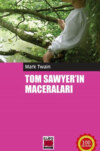Kitabı oku: «Personal Recollections of Joan of Arc — Volume 1», sayfa 14
Chapter 20 Joan Makes Cowards Brave Victors
THE NEXT day Joan wanted to go against the enemy again, but it was the feast of the Ascension, and the holy council of bandit generals were too pious to be willing to profane it with bloodshed. But privately they profaned it with plottings, a sort of industry just in their line. They decided to do the only thing proper to do now in the new circumstances of the case — feign an attack on the most important bastille on the Orleans side, and then, if the English weakened the far more important fortresses on the other side of the river to come to its help, cross in force and capture those works. This would give them the bridge and free communication with the Sologne, which was French territory. They decided to keep this latter part of the program secret from Joan.
Joan intruded and took them by surprise. She asked them what they were about and what they had resolved upon. They said they had resolved to attack the most important of the English bastilles on the Orleans side next morning — and there the spokesman stopped. Joan said:
“Well, go on.”
“There is nothing more. That is all.”
“Am I to believe this? That is to say, am I to believe that you have lost your wits?” She turned to Dunois, and said, “Bastard, you have sense, answer me this: if this attack is made and the bastille taken, how much better off would we be than we are now?”
The Bastard hesitated, and then began some rambling talk not quite germane to the question. Joan interrupted him and said:
“That will not do, good Bastard, you have answered. Since the Bastard is not able to mention any advantage to be gained by taking that bastille and stopping there, it is not likely that any of you could better the matter. You waste much time here in inventing plans that lead to nothing, and making delays that are a damage. Are you concealing something from me? Bastard, this council has a general plan, I take it; without going into details, what is it?”
“It is the same it was in the beginning, seven months ago — to get provisions for a long siege, then sit down and tire the English out.”
“In the name of God! As if seven months was not enough, you want to provide for a year of it. Now ye shall drop these pusillanimous dreams — the English shall go in three days!”
Several exclaimed:
“Ah, General, General, be prudent!”
“Be prudent and starve? Do ye call that war? I tell you this, if you do not already know it: The new circumstances have changed the face of matters. The true point of attack has shifted; it is on the other side of the river now. One must take the fortifications that command the bridge. The English know that if we are not fools and cowards we will try to do that. They are grateful for your piety in wasting this day. They will reinforce the bridge forts from this side to-night, knowing what ought to happen to-morrow. You have but lost a day and made our task harder, for we will cross and take the bridge forts. Bastard, tell me the truth — does not this council know that there is no other course for us than the one I am speaking of?”
Dunois conceded that the council did know it to be the most desirable, but considered it impracticable; and he excused the council as well as he could by saying that inasmuch as nothing was really and rationally to be hoped for but a long continuance of the siege and wearying out of the English, they were naturally a little afraid of Joan’s impetuous notions. He said:
“You see, we are sure that the waiting game is the best, whereas you would carry everything by storm.”
“That I would! — and moreover that I will! You have my orders — here and now. We will move upon the forts of the south bank to-morrow at dawn.”
“And carry them by storm?”
“Yes, carry them by storm!”
La Hire came clanking in, and heard the last remark. He cried out:
“By my baton, that is the music I love to hear! Yes, that is the right time and the beautiful words, my General — we will carry them by storm!”
He saluted in his large way and came up and shook Joan by the hand.
Some member of the council was heard to say:
“It follows, then, that we must begin with the bastille St. John, and that will give the English time to — ”
Joan turned and said:
“Give yourselves no uneasiness about the bastille St. John. The English will know enough to retire from it and fall back on the bridge bastilles when they see us coming.” She added, with a touch of sarcasm, “Even a war-council would know enough to do that itself.”
Then she took her leave. La Hire made this general remark to the council:
“She is a child, and that is all ye seem to see. Keep to that superstition if you must, but you perceive that this child understands this complex game of war as well as any of you; and if you want my opinion without the trouble of asking for it, here you have it without ruffles or embroidery — by God, I think she can teach the best of you how to play it!”
Joan had spoken truly; the sagacious English saw that the policy of the French had undergone a revolution; that the policy of paltering and dawdling was ended; that in place of taking blows, blows were ready to be struck now; therefore they made ready for the new state of things by transferring heavy reinforcements to the bastilles of the south bank from those of the north.
The city learned the great news that once more in French history, after all these humiliating years, France was going to take the offensive; that France, so used to retreating, was going to advance; that France, so long accustomed to skulking, was going to face about and strike. The joy of the people passed all bounds. The city walls were black with them to see the army march out in the morning in that strange new position — its front, not its tail, toward an English camp. You shall imagine for yourselves what the excitement was like and how it expressed itself, when Joan rode out at the head of the host with her banner floating above her.
We crossed the five in strong force, and a tedious long job it was, for the boats were small and not numerous. Our landing on the island of St. Aignan was not disputed. We threw a bridge of a few boats across the narrow channel thence to the south shore and took up our march in good order and unmolested; for although there was a fortress there — St. John — the English vacated and destroyed it and fell back on the bridge forts below as soon as our first boats were seen to leave the Orleans shore; which was what Joan had said would happen, when she was disputing with the council.
We moved down the shore and Joan planted her standard before the bastille of the Augustins, the first of the formidable works that protected the end of the bridge. The trumpets sounded the assault, and two charges followed in handsome style; but we were too weak, as yet, for our main body was still lagging behind. Before we could gather for a third assault the garrison of St. Prive were seen coming up to reinforce the big bastille. They came on a run, and the Augustins sallied out, and both forces came against us with a rush, and sent our small army flying in a panic, and followed us, slashing and slaying, and shouting jeers and insults at us.
Joan was doing her best to rally the men, but their wits were gone, their hearts were dominated for the moment by the old-time dread of the English. Joan’s temper flamed up, and she halted and commanded the trumpets to sound the advance. Then she wheeled about and cried out:
“If there is but a dozen of you that are not cowards, it is enough — follow me!”
Away she went, and after her a few dozen who had heard her words and been inspired by them. The pursuing force was astonished to see her sweeping down upon them with this handful of men, and it was their turn now to experience a grisly fright — surely this is a witch, this is a child of Satan! That was their thought — and without stopping to analyze the matter they turned and fled in a panic.
Our flying squadrons heard the bugle and turned to look; and when they saw the Maid’s banner speeding in the other direction and the enemy scrambling ahead of it in disorder, their courage returned and they came scouring after us.
La Hire heard it and hurried his force forward and caught up with us just as we were planting our banner again before the ramparts of the Augustins. We were strong enough now. We had a long and tough piece of work before us, but we carried it through before night, Joan keeping us hard at it, and she and La Hire saying we were able to take that big bastille, and must. The English fought like — well, they fought like the English; when that is said, there is no more to say. We made assault after assault, through the smoke and flame and the deafening cannon-blasts, and at last as the sun was sinking we carried the place with a rush, and planted our standard on its walls.
The Augustins was ours. The Tourelles must be ours, too, if we would free the bridge and raise the siege. We had achieved one great undertaking, Joan was determined to accomplish the other. We must lie on our arms where we were, hold fast to what we had got, and be ready for business in the morning. So Joan was not minded to let the men be demoralized by pillage and riot and carousings; she had the Augustins burned, with all its stores in it, excepting the artillery and ammunition.
Everybody was tired out with this long day’s hard work, and of course this was the case with Joan; still, she wanted to stay with the army before the Tourelles, to be ready for the assault in the morning. The chiefs argued with her, and at last persuaded her to go home and prepare for the great work by taking proper rest, and also by having a leech look to a wound which she had received in her foot. So we crossed with them and went home.
Just as usual, we found the town in a fury of joy, all the bells clanging, everybody shouting, and several people drunk. We never went out or came in without furnishing good and sufficient reasons for one of these pleasant tempests, and so the tempest was always on hand. There had been a blank absence of reasons for this sort of upheavals for the past seven months, therefore the people too to the upheavals with all the more relish on that account.
Chapter 21 She Gently Reproves Her Dear Friend
TO GET away from the usual crowd of visitors and have a rest, Joan went with Catherine straight to the apartment which the two occupied together, and there they took their supper and there the wound was dressed. But then, instead of going to bed, Joan, weary as she was, sent the Dwarf for me, in spite of Catherine’s protests and persuasions. She said she had something on her mind, and must send a courier to Domremy with a letter for our old Pere Fronte to read to her mother. I came, and she began to dictate. After some loving words and greetings to her mother and family, came this:
“But the thing which moves me to write now, is to say that when you presently hear that I am wounded, you shall give yourself no concern about it, and refuse faith to any that shall try to make you believe it is serious.”
She was going on, when Catherine spoke up and said:
“Ah, but it will fright her so to read these words. Strike them out, Joan, strike them out, and wait only one day — two days at most — then write and say your foot was wounded but is well again — for it surely be well then, or very near it. Don’t distress her, Joan; do as I say.”
A laugh like the laugh of the old days, the impulsive free laugh of an untroubled spirit, a laugh like a chime of bells, was Joan’s answer; then she said:
“My foot? Why should I write about such a scratch as that? I was not thinking of it, dear heart.”
“Child, have you another wound and a worse, and have not spoken of it? What have you been dreaming about, that you — ”
She had jumped up, full of vague fears, to have the leech called back at once, but Joan laid her hand upon her arm and made her sit down again, saying:
“There, now, be tranquil, there is no other wound, as yet; I am writing about one which I shall get when we storm that bastille tomorrow.”
Catherine had the look of one who is trying to understand a puzzling proposition but cannot quite do it. She said, in a distraught fashion:
“A wound which you are going to get? But — but why grieve your mother when it — when it may not happen?”
“May not? Why, it will.”
The puzzle was a puzzle still. Catherine said in that same abstracted way as before:
“Will. It is a strong word. I cannot seem to — my mind is not able to take hold of this. Oh, Joan, such a presentiment is a dreadful thing — it takes one’s peace and courage all away. Cast it from you! — drive it out! It will make your whole night miserable, and to no good; for we will hope — ”
“But it isn’t a presentiment — it is a fact. And it will not make me miserable. It is uncertainties that do that, but this is not an uncertainty.”
“Joan, do you know it is going to happen?”
“Yes, I know it. My Voices told me.”
“Ah,” said Catherine, resignedly, “if they told you — But are you sure it was they? — quite sure?”
“Yes, quite. It will happen — there is no doubt.”
“It is dreadful! Since when have you know it?”
“Since — I think it is several weeks.” Joan turned to me. “Louis, you will remember. How long is it?”
“Your Excellency spoke of it first to the King, in Chinon,” I answered; “that was as much as seven weeks ago. You spoke of it again the 20th of April, and also the 22d, two weeks ago, as I see by my record here.”
These marvels disturbed Catherine profoundly, but I had long ceased to be surprised at them. One can get used to anything in this world. Catherine said:
“And it is to happen to-morrow? — always to-morrow? Is it the same date always? There has been no mistake, and no confusion?”
“No,” Joan said, “the 7th of May is the date — there is no other.”
“Then you shall not go a step out of this house till that awful day is gone by! You will not dream of it, Joan, will you? — promise that you will stay with us.”
But Joan was not persuaded. She said:
“It would not help the matter, dear good friend. The wound is to come, and come to-morrow. If I do not seek it, it will seek me. My duty calls me to that place to-morrow; I should have to go if my death were waiting for me there; shall I stay away for only a wound? Oh, no, we must try to do better than that.”
“Then you are determined to go?”
“Of a certainty, yes. There is only one thing that I can do for France — hearten her soldiers for battle and victory.” She thought a moment, then added, “However, one should not be unreasonable, and I would do much to please you, who are so good to me. Do you love France?”
I wondered what she might be contriving now, but I saw no clue. Catherine said, reproachfully:
“Ah, what have I done to deserve this question?”
“Then you do love France. I had not doubted it, dear. Do not be hurt, but answer me — have you ever told a lie?”
“In my life I have not wilfully told a lie — fibs, but no lies.”
“That is sufficient. You love France and do not tell lies; therefore I will trust you. I will go or I will stay, as you shall decide.”
“Oh, I thank you from my heart, Joan! How good and dear it is of you to do this for me! Oh, you shall stay, and not go!”
In her delight she flung her arms about Joan’s neck and squandered endearments upon her the least of which would have made me rich, but, as it was, they only made me realize how poor I was — how miserably poor in what I would most have prized in this world. Joan said:
“Then you will send word to my headquarters that I am not going?”
“Oh, gladly. Leave that to me.”
“It is good of you. And how will you word it? — for it must have proper official form. Shall I word it for you?”
“Oh, do — for you know about these solemn procedures and stately proprieties, and I have had no experience.”
“Then word it like this: ‘The chief of staff is commanded to make known to the King’s forces in garrison and in the field, that the General-in-Chief of the Armies of France will not face the English on the morrow, she being afraid she may get hurt. Signed, JOAN OF ARC, by the hand of CATHERINE BOUCHER, who loves France.’”
There was a pause — a silence of the sort that tortures one into stealing a glance to see how the situation looks, and I did that. There was a loving smile on Joan’s face, but the color was mounting in crimson waves into Catherine’s, and her lips were quivering and the tears gathering; then she said:
“Oh, I am so ashamed of myself! — and you are so noble and brave and wise, and I am so paltry — so paltry and such a fool!” and she broke down and began to cry, and I did so want to take her in my arms and comfort her, but Joan did it, and of course I said nothing. Joan did it well, and most sweetly and tenderly, but I could have done it as well, though I knew it would be foolish and out of place to suggest such a thing, and might make an awkwardness, too, and be embarrassing to us all, so I did not offer, and I hope I did right and for the best, though I could not know, and was many times tortured with doubts afterward as having perhaps let a chance pass which might have changed all my life and made it happier and more beautiful than, alas, it turned out to be. For this reason I grieve yet, when I think of that scene, and do not like to call it up out of the deeps of my memory because of the pangs it brings.
Well, well, a good and wholesome thing is a little harmless fun in this world; it tones a body up and keeps him human and prevents him from souring. To set that little trap for Catherine was as good and effective a way as any to show her what a grotesque thing she was asking of Joan. It was a funny idea now, wasn’t it, when you look at it all around? Even Catherine dried up her tears and laughed when she thought of the English getting hold of the French Commander-in-Chief’s reason for staying out of a battle. She granted that they could have a good time over a thing like that.
We got to work on the letter again, and of course did not have to strike out the passage about the wound. Joan was in fine spirits; but when she got to sending messages to this, that, and the other playmate and friend, it brought our village and the Fairy Tree and the flowery plain and the browsing sheep and all the peaceful beauty of our old humble home-place back, and the familiar names began to tremble on her lips; and when she got to Haumette and Little Mengette it was no use, her voice broke and she couldn’t go on. She waited a moment, then said:
“Give them my love — my warm love — my deep love — oh, out of my heart of hearts! I shall never see our home any more.”
Now came Pasquerel, Joan’s confessor, and introduced a gallant knight, the Sire de Rais, who had been sent with a message. He said he was instructed to say that the council had decided that enough had been done for the present; that it would be safest and best to be content with what God had already done; that the city was now well victualed and able to stand a long siege; that the wise course must necessarily be to withdraw the troops from the other side of the river and resume the defensive — therefore they had decided accordingly.
“The incurable cowards!” exclaimed Joan. “So it was to get me away from my men that they pretended so much solicitude about my fatigue. Take this message back, not to the council — I have no speeches for those disguised ladies’ maids — but to the Bastard and La Hire, who are men. Tell them the army is to remain where it is, and I hold them responsible if this command miscarries. And say the offensive will be resumed in the morning. You may go, good sir.”
Then she said to her priest:
“Rise early, and be by me all the day. There will be much work on my hands, and I shall be hurt between my neck and my shoulder.”










